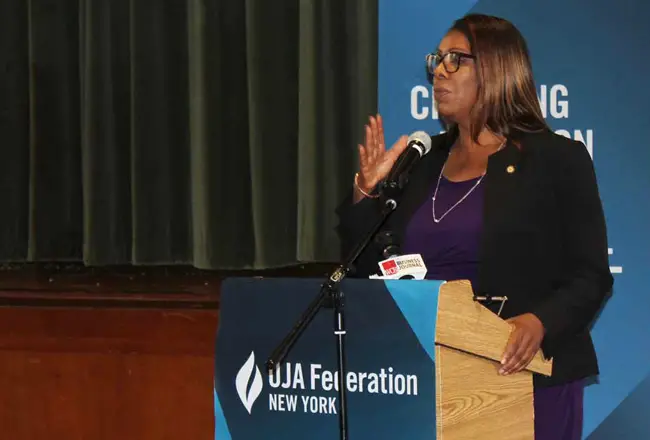NY and CT AGs oppose proposed change to federal poverty threshold

New York Attorney General Letitia James and her Connecticut counterpart William Tong are part of a new coalition of 21 state attorneys general protesting a proposal that would alter how the federal poverty threshold is calculated.
The attorneys general submitted a comment letter to the federal Office of Management and Budget (OMB), warning that the proposed adjustment could result in reducing or eliminating government-funded benefits for millions of people. While the attorneys general acknowledged the current formula for determining the poverty threshold is outdated, they opposed the OMB”™s proposal that would drastically reduce the number of people eligible for federal assistance.
“This administration has declared war on New Yorkers and Americans living in poverty,” said James, who is leading the coalition with Illinois Attorney General Kwame Raoul. “Changing the way the poverty threshold is calculated could negatively impact tens of thousands of New Yorkers and millions more across the country by stripping them of crucial benefits and funding they need to attain a basic standard of living. I”™m proud to co-lead this effort to resist a change in calculating the federal poverty threshold because New Yorkers need someone fighting to for their best interests every day.”
“The Trump administration wants to manipulate the numbers to magically erase poverty for millions of Americans in need,” Tong said. “This cynical policy change has no basis in the real economic situation of poor families. The proposal is more than shifting lines on a spreadsheet ”“ it will deny Connecticut families food stamps, health care assistance and other assistance they rely on daily to stay afloat. This proposal is deeply hurtful and must be rejected.”
Joining James, Tong and Raoul in submitting the comments were the attorneys general of California, Delaware, the District of Columbia, Hawaii, Kentucky, Maryland, Massachusetts, Michigan, Minnesota, Nevada, New Jersey, New Mexico, North Carolina, Oregon, Rhode Island, Virginia, Vermont and Washington.